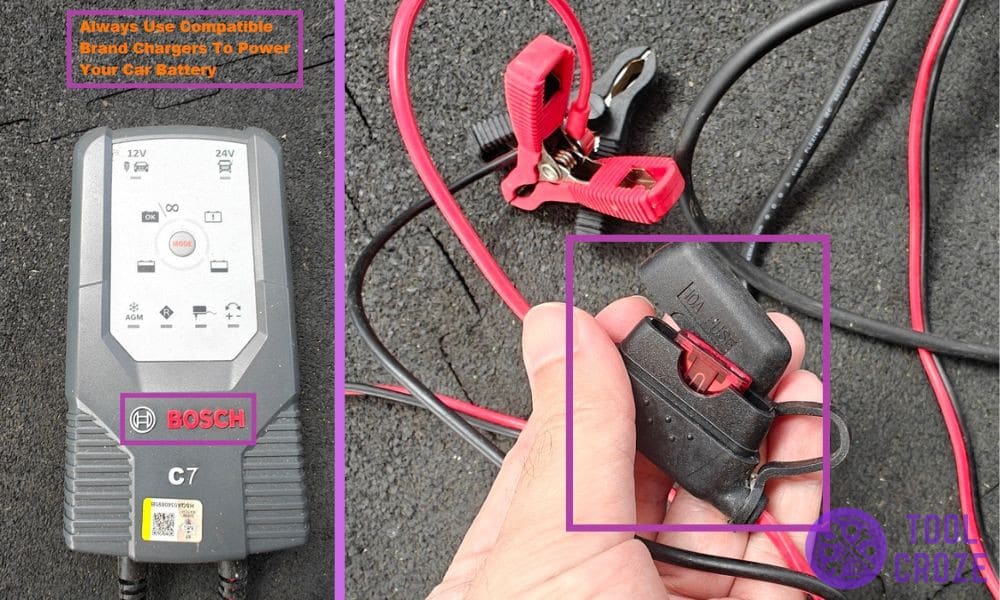
If you’ve noticed that your car battery is not charging with a charger, the issue could be because to a number of different things.
But, I can help you narrow it down to the exact reason with some good old tinkering!
Car Battery Not Charging With Charger?
- Use A Compatible Charger
I shouldn’t have to tell anyone this, but a charger obviously won’t work if the device you’re using isn’t compatbile with it.
For example, some branded car batteries don’t fit some OTHER branded chargers.
This comes down to the signature design of both the charger and the battery, which aren’t compatible with each other.
So, you might have trouble charging your car battery because the charger doesn’t match it.
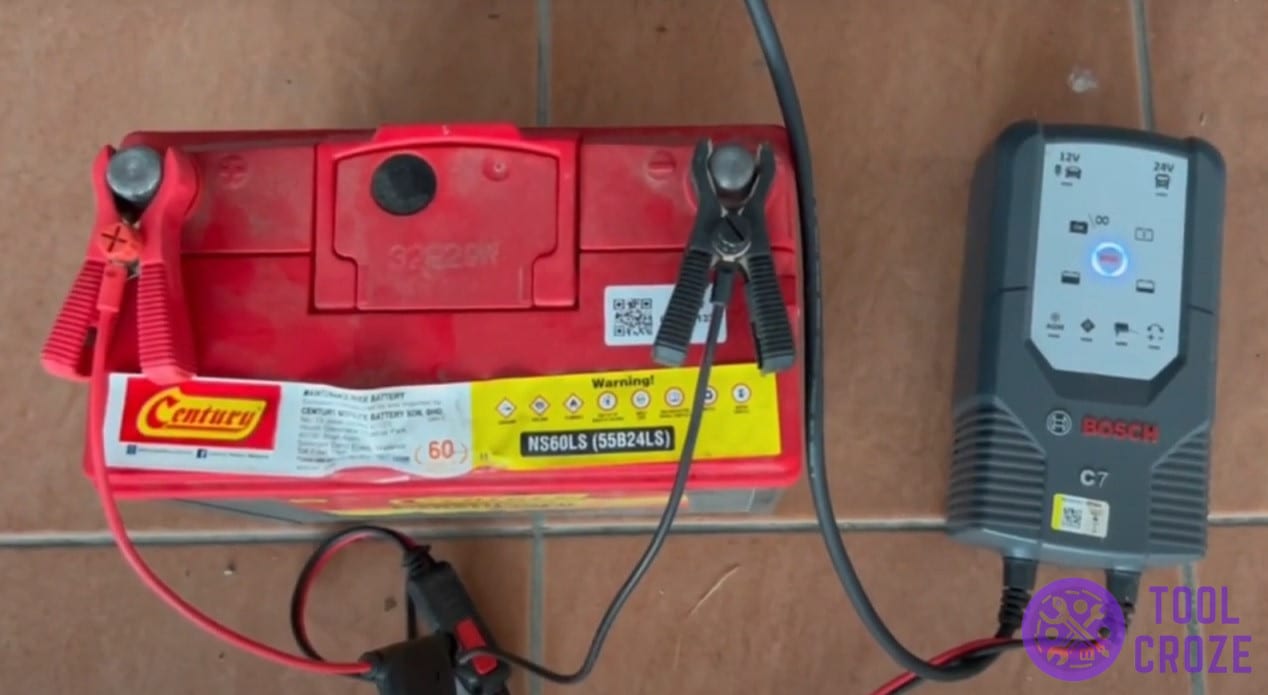
I recommend looking online to see which chargers aren’t compatible with your specific battery.
I myself have a Bosch C7 battery charger which you can see in the picture below.
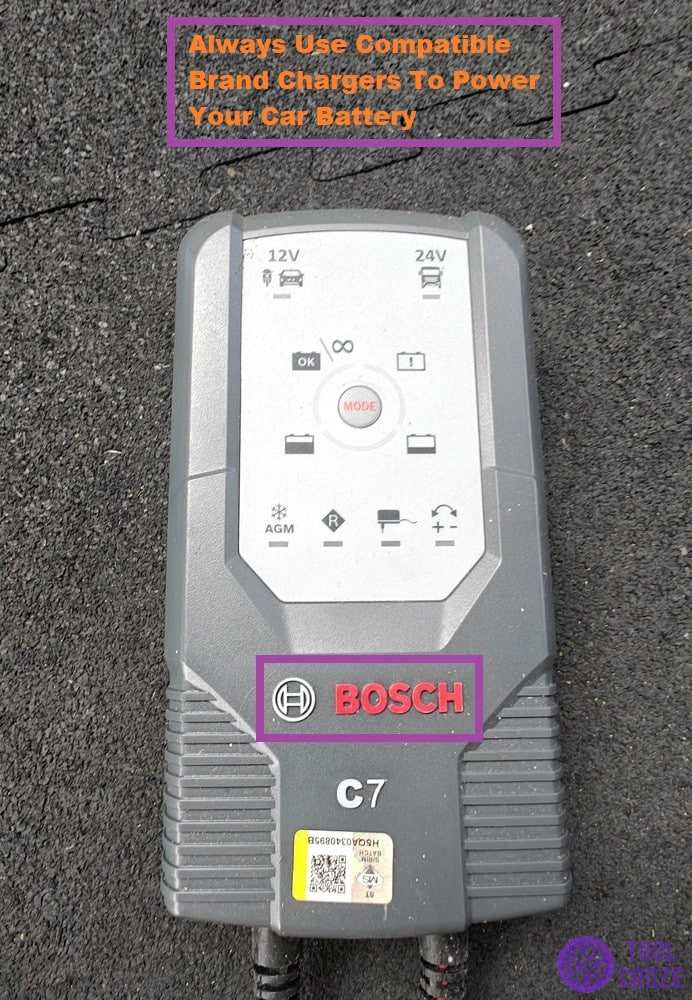
Like I highighted in the photo above, just watch out for the compatibility for certain chargers with certain batteries.
There isn’t any point in doing so much troubleshooting if the battery can’t possibly be charged.
But, if you’re sure that there aren’t any such limitations with the battery and charger you’re using, move on to the next thing.
- Voltage Setting Issue
One more thing I want to mention when it comes to compatibility is the voltage setting.
If you’ve ever taken a good look at your battery, you’ve probably noticed that it mentions a voltage setting.
This voltage setting is the power you need to charge this battery.
If your charger can’t supply that much voltage, or you’re using a lower voltage setting, the battery obviously won’t charge.
Here is my video on how my Bosch car battery charger detect if any abnormality occur.
In fact, I want you to know that using the wrong voltage on a charger can actually lead to problems for the battery too.
So, always make sure to keep the voltage just perfect, and not too high or low.
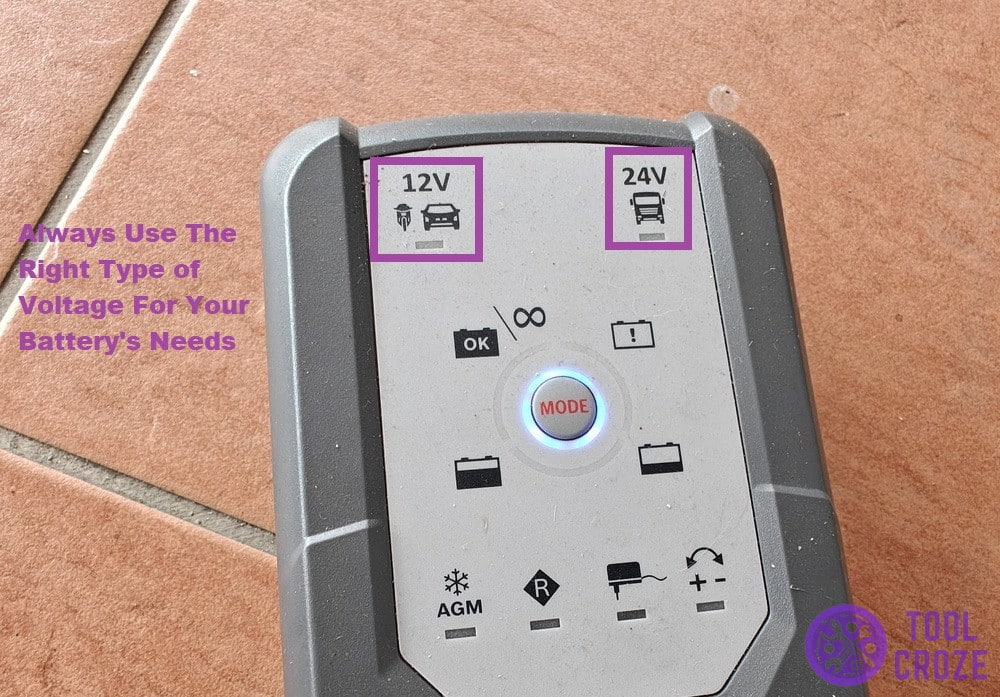
Take a look at my charger in the photo above. I highlighted two different voltage settings available on it.
In case your charger also has these settings, try to ensure you’re using the right one.
The 12V battery normally comes with car while some heavy vehicles battery are most 24V.
My Bosch C7 charger above would automatically detect the voltage and charge the battery accordingly.
So, I do not need to worry about for my charger, but you should check if your car battery charger comes with this function or not.
Once you switch to the correct output voltage, that should make your car battery start charging.
- Charger Is Overheating
Have you ever noticed your phone or its charger overheating randomly sometimes?
Well if you know what I’m talking about, the same thing can happen to your car battery and its charger.
This usually happens because of a hot environment, or when the charger is being used for too long at once.
The high amount of power being used leads to overheating, which is very harmful.
Car battery chargers overheat all the time, especially in warmer climates because of the external heat. Yours could be overheating too, which is why it isn’t charging your car battery.
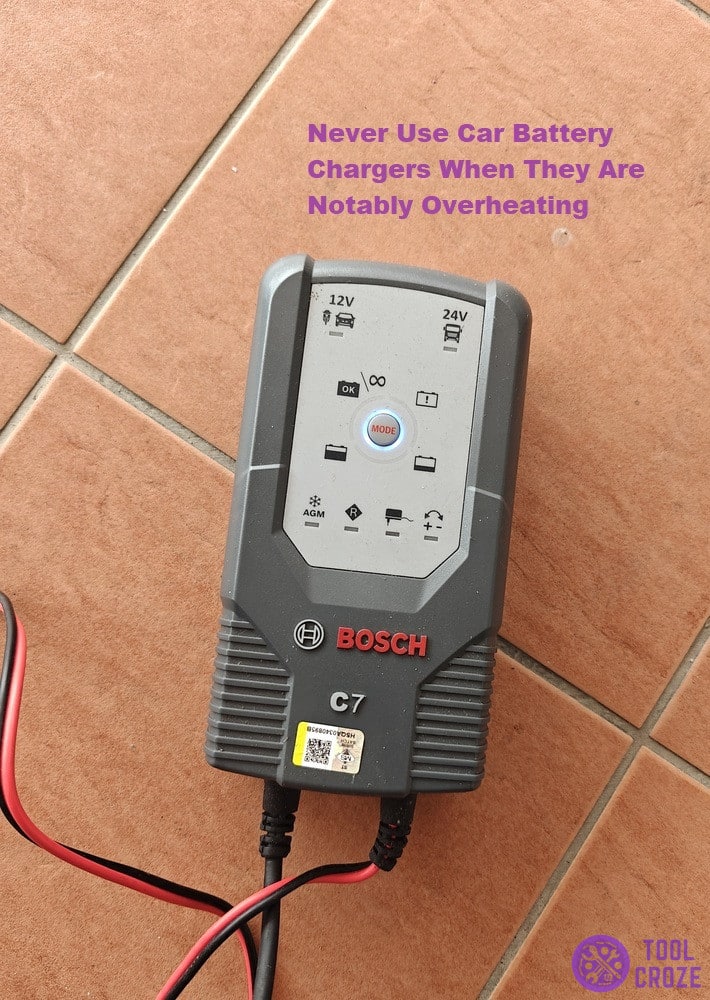
Some chargers also have temperature limits mentioned through a sticker on them, or inside their manual. I’m sure yours should have something similar.
Once you know what the preferred temperature range is for your battery charger, make sure to always keep it within that range.
- Blown Fuse
Something I find really cool about modern car battery chargers is that they actually have a fuse in them.
This fuse acts as a way to prevent damage from occuring to your car battery or the charger itself.
It’s a lot like a breaker fuse inside your home, which shuts off power when there’s a surge. It even protects your devices the same way.
In the case of these car battery chargers, the fuse blows when there’s excess power, or when the temperature reaches a dangerously high level. This is done to save the charger and the battery connected to it.
Here’s an image of this fuse on my Bosch car battery charger, so you know what it looks like. On my device, the fuse is behind a small cover that protects it from breaking because of external force.
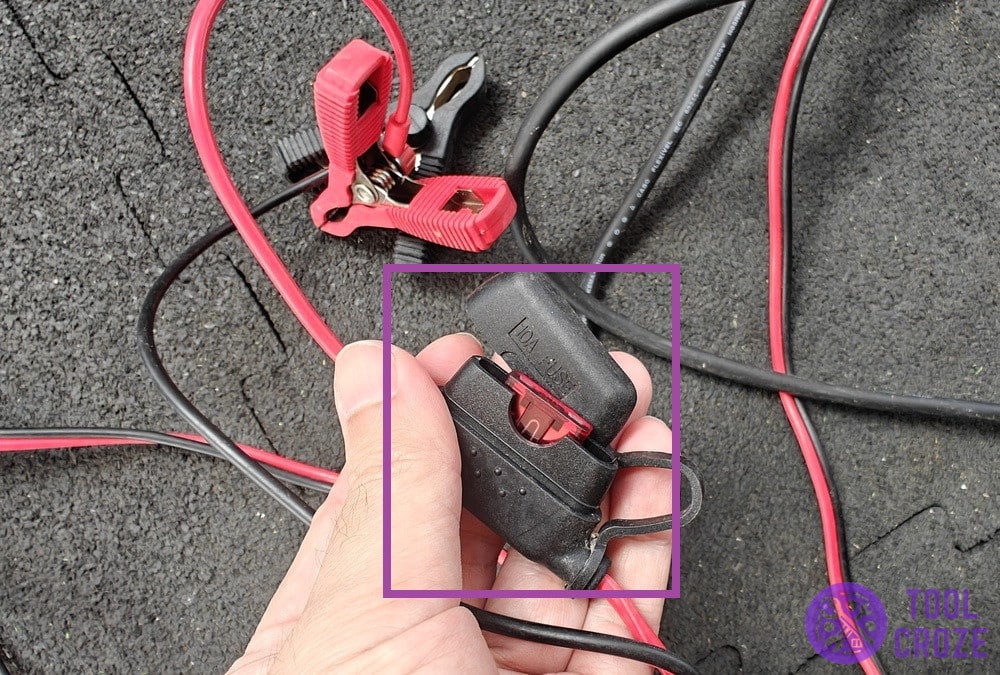
Your charger should have one similar to what I highlighted above. If it does, inspect the fuse to see if it’s burnt or blown.
If you find this fuse and it does in fact look burnt or damaged, you will have to remove and replace it. I think there might be a replacement fuse in the packaging of your battery.
But, even if there isn’t one, you can easily find them for pretty cheap online. One thing I want you to watch out for though is that you get the right type of fuse.
Personally, my Bosch car battery charger uses 10A fuses, which you can see on the image I showed you just a bit ago. But, your battery might use different types of fuses, so make sure to get the right ones!

